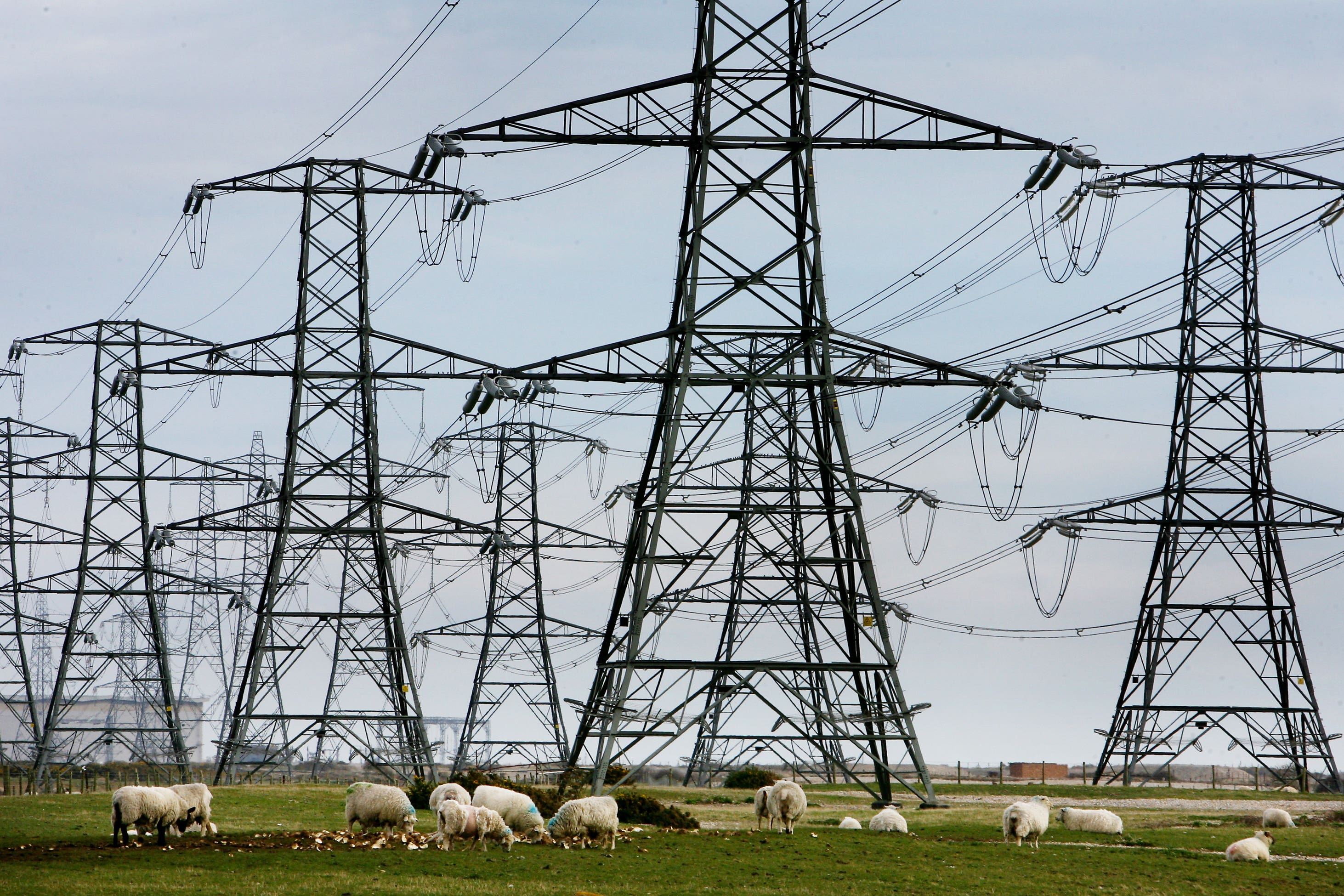Ofgem seeks views on how to encourage people to switch to off-peak power use
Experts say that a system which rewards people for consuming electricity during off-peak hours could save billions of pounds per year.

Your support helps us to tell the story
From reproductive rights to climate change to Big Tech, The Independent is on the ground when the story is developing. Whether it's investigating the financials of Elon Musk's pro-Trump PAC or producing our latest documentary, 'The A Word', which shines a light on the American women fighting for reproductive rights, we know how important it is to parse out the facts from the messaging.
At such a critical moment in US history, we need reporters on the ground. Your donation allows us to keep sending journalists to speak to both sides of the story.
The Independent is trusted by Americans across the entire political spectrum. And unlike many other quality news outlets, we choose not to lock Americans out of our reporting and analysis with paywalls. We believe quality journalism should be available to everyone, paid for by those who can afford it.
Your support makes all the difference.Energy regulator Ofgem has started a consultation on building a system which experts believe could save households billions of pounds a year.
The regulator wants to figure out how to best get customers onboard in what some think can be a ‘holy grail’ for the future of the energy system – ensuring that people use electricity when it is more plentiful.
In the past, most electricity in the UK has been created by burning things – largely gas or coal.
These kinds of power plants can easily respond to demand: When more people turn on their ovens or TVs, the workers in the coal plant can increase how much fuel they burn.
But in future more of our electricity will come from wind and solar power, and instead users will have to respond to supply, rather than vice versa.
By doing so it could save huge amounts of money. A report from analysts at Cornwall Insight and Smart Energy GB separately on Thursday estimated that the national cost of electricity could be cut by £14.1 billion a year from 2040 if so-called flexible electricity initiatives are introduced.
That would suggest around £375 off each household’s energy bill, they said.
For Ofgem, the challenge is to create a system which encourages this kind of behaviour. This means setting up a framework which allows or even encourages businesses to offer flexibility incentives to energy users.
Ofgem said that the simplest version of this would be automated. This would mean that someone could set up their electric heating to only come on, or their electric car to only charge, at times when demand for electricity is lower, such as overnight, or when the wind is blowing strongly.
This could allow them to use electricity when it is cheaper, bringing down bills. But such systems will not only reduce costs for the customers who engage in them, everyone will see the benefit.
This is because of how peak electricity usage works and how we pay for new power plants. Electricity use is normally highest between around 4pm and 7pm.
The key to unlocking high consumer uptake is making it both attractive and easy to participate in
Perhaps you need 12 power plants to meet peak electricity use, but at midday maybe half of these will be standing idle because they are not needed.
If instead some households switched some of their energy use to midday, rather than at peak times, you might need only 10 power plants, which run more evenly through the day.
Because everyone’s bills go towards paying to build these power plants, even those who keep using electricity in the same way as before will save money if fewer are built.
There are already examples of this being used in the UK today. Last winter customers were paid by the grid for lowering their electricity use during peak hours on some days. But this system was manual, rather than automated, which people hope it can become in future.
Ofgem deputy director of digitalisation and innovation Marzia Zafar said: “The key to unlocking high consumer uptake is making it both attractive and easy to participate in.
“It is not Ofgem’s role to specify what this … journey should look like, but it is important that it is not left to chance.
“Therefore, as the regulator we are seeking input from a wide range of stakeholders including those working in industry, the providers of smart home and transport assets, consumer representatives and other parties interested in flexibility.”